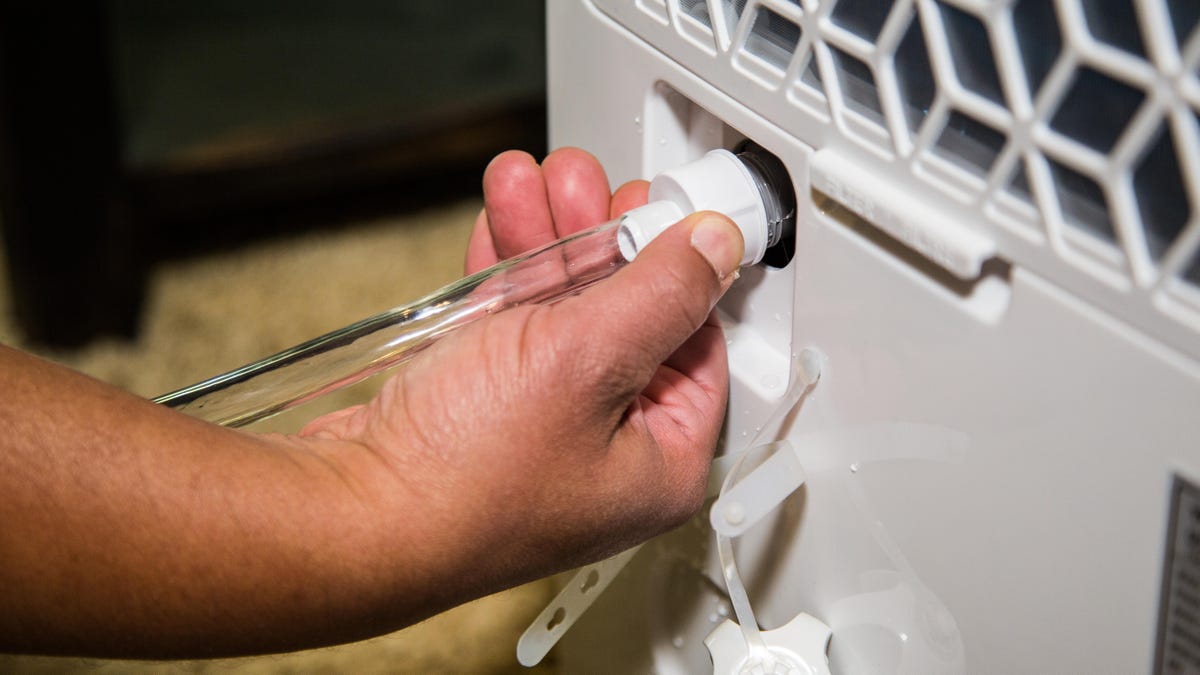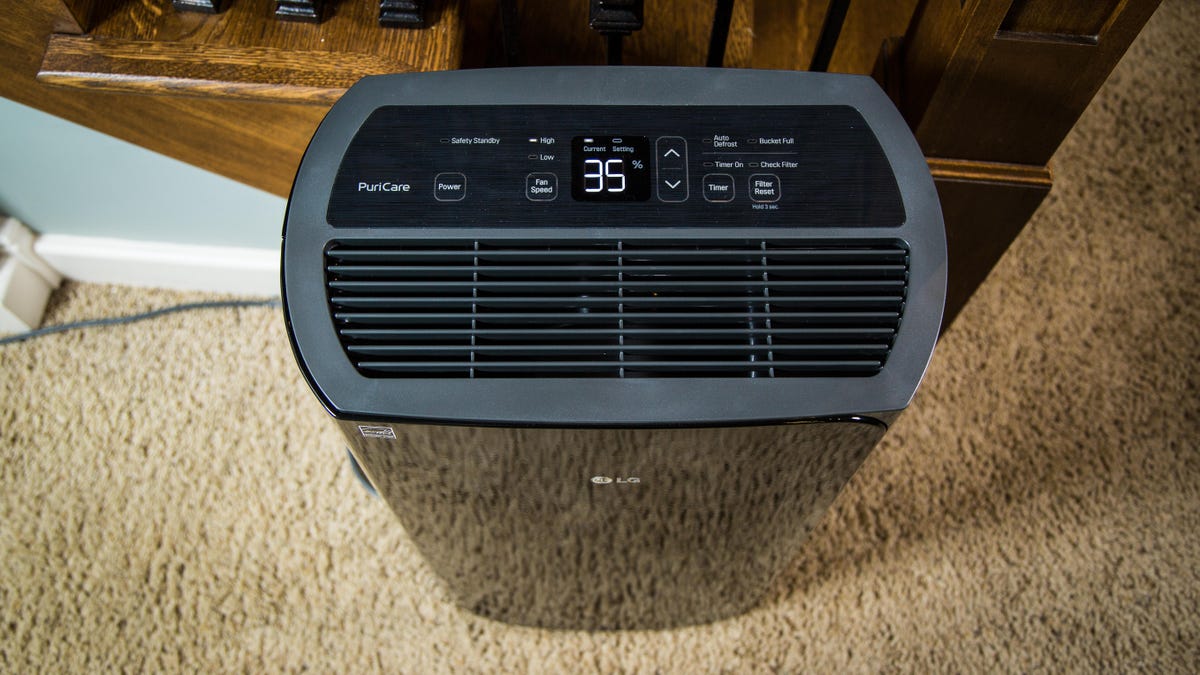How To Set Up A Dehumidifier In Basement
The style you install your dehumidifier will impact how constructive it really is. Location, drainage and proper maintenance are all factors to consider when setting up your new machine. Set up properly, your dehumidifier will wick away moisture from the air and prevent costly repairs.
Whether you already own a dehumidifier that doesn't seem to be working, or you'd like to scope out this installation process, this guide is for yous.
i. Cull the right type and location
The nigh common type of dehumidifiers are the portable kinds, which are affordable and compact. The do good of a portable dehumidifier is that it can easily exist moved around, a big boon for large homes or temporary dehumidifying needs. The downside? They have express operational ranges and tin typically but handle a medium-size room (approximately 250 square feet).
If you purchased a portable dehumidifier, brand sure the room it's in is no larger than what the machine can support. Then, place it in the room that needs it most. Basements are often susceptible to dampness; other problem areas include steamy bathrooms and kitchens with poor ventilation.
Consider how noisy your dehumidifier may exist, too. Since dehumidifiers use fans to circulate air, think twice before placing ane in an area where noise might be a nuisance. Living rooms, hallways and bedrooms usually remain dehumidifier-gratuitous.
If you're experiencing humid conditions throughout your entire house, a portable unit probably won't be plenty. That's especially true if you depend on a primal air (HVAC) system for home climate command. A improve solution in this scenario is to buy a whole-abode dehumidifier. These units integrate directly into your existing HVAC systems and are powerful plenty to handle houses thousands of foursquare anxiety in size. Nonetheless, they require professional installation and are expensive ($1,000 or more).

Connect a bleed tube so the dehumidifier can pump out the water it collects.
Chris Monroe/CNET2. Select your drainage method
Dehumidifiers work past condensing moisture from humid air. They then collect this water in an internal drip tray or tank. Some models also have a motorized pump to actively drain tank water automatically. Information technology's a convenient characteristic and beats manually emptying the drip tray. The big drawback, though, is that the dehumidifier volition need to be placed near a sink or bleed.

Accept your dehumidifier either drain into a pipe or directly into a sink.
Chris Monroe/CNETIf yous do cull a model with a motorized pump, connect a water hose to the dehumidifier's drain pump hole. So, place the other end of the provided bleed hose within a sink, drain or drainage pipe. E'er employ the water hose or tube that came with your appliance, as its length will friction match the rated pumping distance of your car.

Choose your target value for ambience, relative humidity. Between 35 and 50 pct is the ideal range.
Chris Monroe/CNETiii. Gear up your preferred ambient humidity level
Adjacent, information technology's fourth dimension to plug in your dehumidifier. When choosing a desired humidity level, aim for a number between 35 and 50 percent (relative humidity), which is the optimal indoor humidity range. At present your car will work to go on moisture levels close to this value.
Regular cleaning is central for dehumidifiers to function their best.
Chris Monroe/CNETfour. Regular maintenance
After installation, don't forget to perform regular maintenance on your dehumidifier. Cleaning the appliance often will help it to office properly. It will also baby-sit confronting germ and mold growth. For a closer wait at how to keep your dehumidifier clean, watch this video:
These steps provide a general guideline to installing any portable dehumidifier in your home. Check out your model'southward use and care transmission if you have specific questions. And if you're nevertheless trying to decide what portable dehumidifier is right for you, start with our buying guide.
Source: https://www.cnet.com/home/energy-and-utilities/how-to-install-a-portable-dehumidifier-the-right-way/

0 Response to "How To Set Up A Dehumidifier In Basement"
Post a Comment